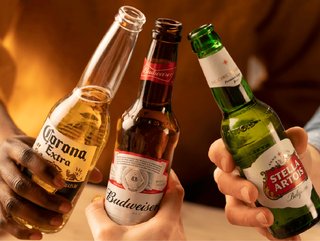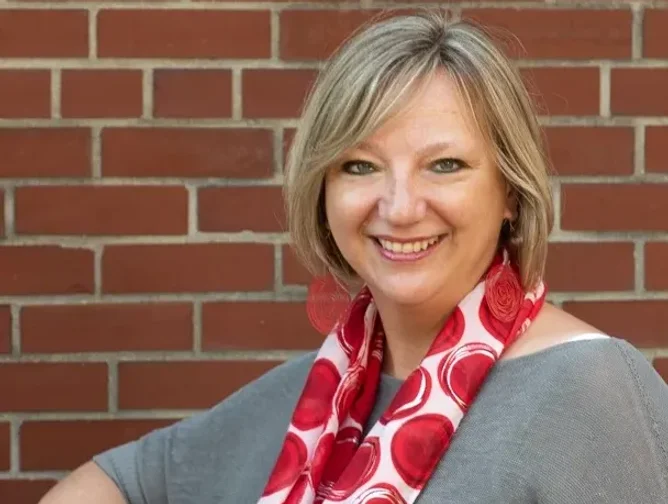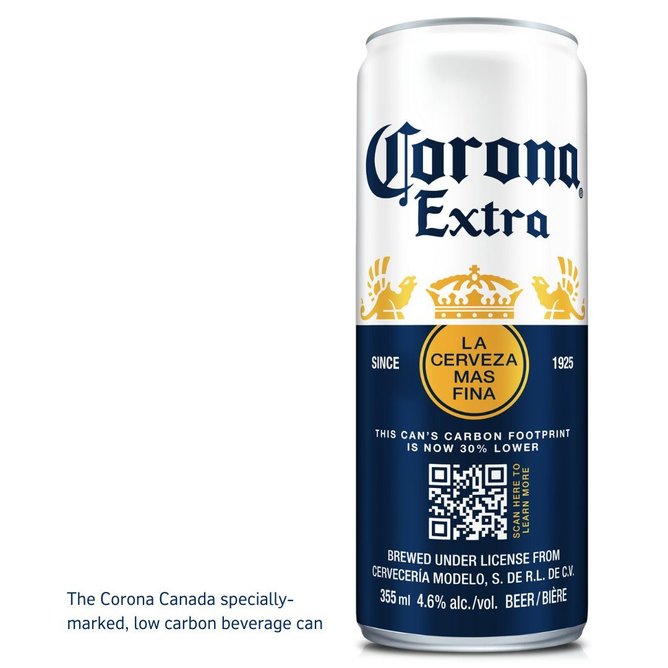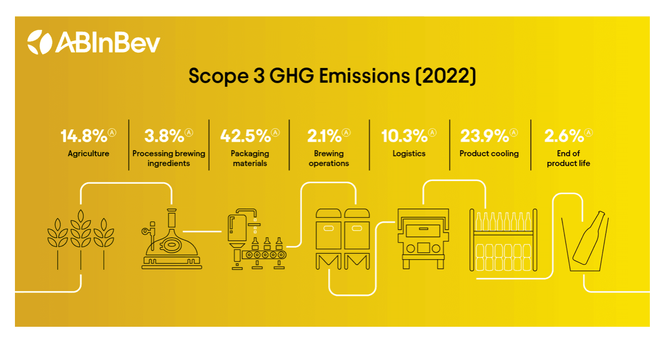Who is the New CSO Driving Decarbonisation at AB InBev?

Executive change is underway at the world’s largest brewer.
Home to high-profile brands like Beck’s Budweiser, Corona and Stella Artois, AB InBev will see a change in sustainability leadership from March 1.
As Chief Sustainability Officer since 2021, Ezgi Barcenas will end her 11-year stint with the brewer on February 29, before joining cosmetics giant L’Oreal Groupe as Chief Corporate Responsibility Officer.
Stepping into her shoes is Ingrid De Ryck, AB InBev’s VP, Procurement & Sustainability for Europe, who has a career at the multinational brewer spanning more than two decades – working in leadership roles across supply chain, logistics and procurement.
Based out of Leuven, Belgium, the home of Stella Artois, one of AB InBev’s leading brands, Ingrid will take on the role of CSO – reporting to Ricardo Moreira, AB InBev’s Chief Supply Chain Officer.
As VP, Procurement & Sustainability for Europe since January 2023, De Ryck has “built a resilient supply chain of material and revised the company’s commodity strategy in an inflationary environment”, Moreira said in a statement.
She is credited with delivering meaningful progress towards AB InBev’s 2025 Sustainability Goals while also driving sustainable financial results.

AB InBev – Ambitious Sustainability Targets for 2025
With annual revenues of US$57.8 billion, in October 2023, AB InBev posted an 8.3% increase in sales from the nine months to the end of September.
The drinks company, which has 175 major breweries, 40 other operations and169,000 employees, has set a goal to be net-zero by 2040 – and in 2018, put in place headline targets to achieve by 2025.
- 100% purchased electricity to be from renewable sources
- 25% reduction in CO2 emissions across value chain
- 100% of communities in high-stress areas to have measurably improved water quality
- 100% of direct farmers will be skilled, connected, and financially empowered
- 100% of packaging will be either returnable or made from majority recycled content
On track to reach these targets, in some areas AB InBev is exceeding.
Since 2022, all AB InBev beers brewed in Western Europe, including Budweiser, Corona and Stella Artois have been brewed with 100% renewable electricity, mainly wind and solar – with a 2025 goal to roll this out worldwide.
The multinational is currently undertaking a major project to further decarbonise its supply chain in Europe. Working with carbon solutions consultancy South Pole, AB InBev is targeting Scope 2 and 3 emissions.
South Pole is helping AV InBev cut greenhouse gas emissions through a group-buying initiative, designed to give customers and suppliers across Europe better access to renewable electricity, enabling AB InBev to power its operations with renewables at a lower cost.
Projects and Partnerships to Drive Solutions Across Value Chain
For AB InBev, which has a wide array of suppliers, distributors and retailers around the world, Scope 3 emissions in the supply chain is its biggest challenge, accounting for a whopping 86.7% of total emissions.
Having reduced Scope 1, 2 and 3 emissions intensity by 20.7% since 2017, the company is now on track to achieve 35% absolute emissions reduction across Scope 1 and 2 and 25% emissions reduction per hercoliter across the entire value chain by 2025.
The AB InBev value chain starts with farmers and spans from brewing operations and distribution network to retailers and the consumers who enjoy the products.
Acknowledging that no one company can solve sustainability challenges alone, AB InBev engages in numerous cross-sector partnerships to scale sustainable solutions that empower the entire value chain.
As well as engaging suppliers representing more than two-thirds of its carbon emissions through various programmes, the brewer piloted the world’s first ‘low-carbon can’ in partnership with Rio Tinto, Ball Corporation and Novellis.
Driving this initiative, then as VP of Procurement and Sustainability, North America, De Ryck was instrumental in piloting the can in Canada for Corona beer – reducing carbon emissions per can by 30%.

Empowerment of suppliers throughout the value chain is a priority too, with plans to have 100% of direct farmers skilled, connected and financially empowered by 2025.
Collaborating with a global team of expert agronomists, researchers and partners, AB InBev’s farmer development programmes provide training, digital tools and access to financing needed to grow their businesses.
For example, the agronomy team in Mexico have developed a programme to promote the use of a native cactus species as a functional field buffer that can reduce soil loss and the sedimentation of nearby water bodies and provide farmers with opportunities for additional income. In the first year of this program, 16 farmers in Mexico’s arid plateau planted more than 6,500 maguey agave plants to help keep soil in the fields and support productive agriculture.
It is initiatives such as these that led AB InBev to be named as a top Supplier Engagement Leader by non-profit CDP in 2023, listed in the top 8% of companies recognised for measuring and reducing climate risk within companies’ supply chains.

Among other recent collaborations helping to reduce Scope 3 emissions in the Ab InBev value chain:
- In Brazil, AB InBev also introduced 100% recycled PET bottles for Guaraná Antarctica – its biggest soft drink brand in the country – which are recyclable, can help reduce greenhouse gas emissions and produce less waste
- Following a successful pilot in Leuven and Brussels, the firm leased 10 additional e-trucks for its Belgian fleet in 2022, which are estimated to collectively reduce GHG emissions by tonnes of CO2e annually
- Ambev, its local brewer in Brazil, partnered with local low-emission energy providers Lemon Energy and Plin, to help convert more than 4,000 bars and restaurants to renewable electricity
**************
Make sure you check out the latest edition of Sustainability Magazineand also sign up to our global conference series - Sustainability LIVE 2024
**************
Sustainability Magazine is a BizClik brand






